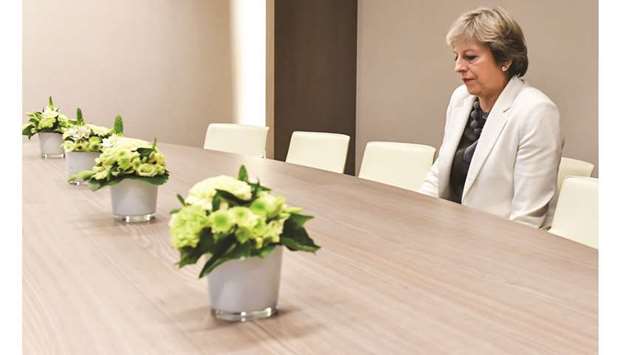The shadow Brexit secretary, Keir Starmer, has blamed “wannabe Tory leaders” for the breakdown of cross-party talks as he renewed his call for a second referendum on leaving the EU.
The government and Labour sought to blame each other after talks to find a compromise Brexit plan collapsed on Friday, leaving any remaining hopes of an imminent solution to the impasse in tatters.
While both sides insisted the discussions had taken place in good faith, Prime Minister Theresa May said that a key sticking point had been Labour splits over a second referendum, while the opposition said that May’s imminent departure from Downing Street meant that there was no guarantee any promises would be kept by her successor.
Speaking on BBC Radio 4’s Today programme, Starmer compared dealing with May and her team to trying to secure a contract with a company about to go into administration.
“The real problem was this question of how on earth do you future-proof any deal – if there was a deal – against an incoming Tory leader?” he said. “Because … the prime minister said before we started the talks that she would be going.
“It’s not for me to criticise that, that’s her judgment about when she wants to go.
“But it does mean that during the talks – almost literally – sitting in the room as we’re talking, cabinet members and wannabe Tory leaders were torpedoing the talks with remarks about not being willing to accept a customs union.”
He echoed the words of the shadow chancellor, John McDonnell, last week that the negotiations were like “trying to contract with a company about to go into administration”.
“There was a weakness, because circling around those in the room trying to negotiate were others who didn’t want the negotiation to succeed because they had their eye on what was coming next,” McDonnell had said.
He said the situation put May “in a position where she was in reality too weak to deliver, in our judgment”.
Starmer said that the government had to find a way to end the stalemate, and suggested: “They could seek to break the impasse by putting a confirmatory vote on the face of a bill.”
“But what we can’t do is just keep on buying another week at a time, which is what the prime minister’s been doing for months,” he said.
May has publicly opposed holding a second public vote.
Starmer was asked if a no-deal departure from the EU was now looking more likely.
“I don’t accept that – it’s five and a half months to go before the deadline. I don’t accept that we can’t talk to the EU about further changes to the Political Declaration, I accept the Withdrawal Agreement is a different proposition.”
His comments came as Matt Hancock, the health secretary, said that May’s successor should not call a general election until Britain had left the EU.
He said an early poll could hand the keys of No 10 to the Labour leader, Jeremy Corbyn, and risk “killing Brexit altogether”.
Hancock said that it is essential that the Conservatives delivered on the 2016 referendum result in the current parliament.
A poll of Tory members made Boris Johnson the frontrunner to succeed May after she bowed to pressure and agreed to set a timetable at the start of next month to elect a new leader.
In an interview with the Daily Telegraph, Hancock, who voted remain in the referendum, said: “I think a general election before we’ve delivered Brexit would be a disaster. People don’t want it. We need to take responsibility for delivering on the referendum result.”
May is to make one final attempt to get her Brexit deal through parliament when she introduces the withdrawal agreement bill (Wab) in the Commons in the first full week of June.
However, after the cross-party talks collapsed, few in Westminster give her much chance of success.
The Labour Party and rebels within May’s Conservative Party have said that they plan to oppose it.
Whatever the result, May has agreed to meet the chair of the 1922 Committee of backbench Tory MPs, Sir Graham Brady, after the vote to agree a timetable for the election of her successor.
Nearly three years after the United Kingdom voted 52% to 48% in a referendum to leave the EU, it remains unclear how, when or even if the country will leave the European club it joined in 1973.
The current deadline to leave is October 31.

May: seen as too weak to deliver.
